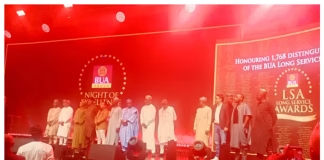The challenge of rural connectivity is a long standing one. And seeing as it’s an issue requiring a collaborative effort of stakeholders in the telecoms space, the Nigerian Communications Commission, NCC, partnered with the Association for Progressive Communications and other institutional stakeholders to host a two-day workshop in Abuja to address the issue.
The workshop (June 3rd to 4th) 2025, explored policy frameworks for enabling community networks towards bridging the digital divide and accelerating socio-economic development in Nigeria’s underserved and unserved communities.
The Executive Vice Chairman of NCC, Dr. Aminu Maida, who was represented by the Executive Commissioner, Technical Services, NCC, Abraham Oshadami, in his inaugural speech described the workshop as important to bridging the digital divide in Nigeria and foster inclusive social economic development. He also saw the workshop as “an opportunity for all of us to harness the expertise, insights, and experiences of diverse stakeholders present here which includes the regulators, community leaders, technical experts and potential foreign providers to address the critical challenges such as affordable devices, access, licensing, spectrum allocation, infrastructure development, sustainability and institutional monitoring.”

The EVC said NCC was committed to this journey (of advancing digital inclusion, particularly in underserved and unserved areas), having “recognised the transformative potential of community center networks in achieving this important goal,” he said.
The forum brought together regulators, community leaders, technical experts and potential foreign investors, among others, to examine policy and regulatory barriers, explore innovative funding mechanisms, ensure sustainable renewable solutions and strengthen collaboration with stakeholders.
In her remarks, Co-Manager of the Association for Progressive Communications’ Local Network (LocNet) Initiative, Kathleen Diga, noted that the collaboration was to tackle identified hindrances to digital inclusion. “This is a space where we can be open and exchange ideas of possibilities, opportunities that will remain in realizing values of a diversified ecosystem.”
Diga said the workshop presented “a moment in time that we can explore the bottom-up approach in local communities, small social enterprises, corporative among others, which have the ability to fill some of the digital gaps that remain unfilled”
The workshop featured presentations from the NCC, the Association for Progressive Communications and other institutional stakeholders such as the Rural Electrification Agency (REA) and the Central Bank of Nigeria (CBN) all geared towards exploring a joint policy framework to address rural digital divide.
The Association for Progressive Communications is a 35-year-old international network member-based organisation encouraging digital inclusion in the unserved communities, particularly with communities in the global south and the workshop, through its LocNet initiative aimed at crafting an enabling inclusive regulatory framework for community networks in Nigeria.


